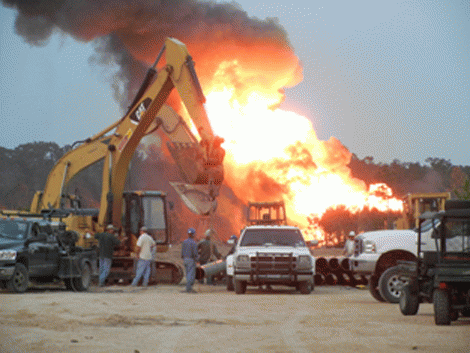by Walter Brasch
The oil and gas industry, the nation's chambers of commerce, and politicians who are dependent upon campaign contributions from the industry and the chambers, claim fracking is safe.
First, close your mind to the myriad scientific studies that show the health effects from fracking.
Close your mind to the well-documented evidence of the environmental impact.
Focus just upon the effects upon the workers.
The oil and gas industry has a fatality rate seven times higher than for all other workers, according to data released by the Centers for Disease Control. (CDC). According to the CDC, the death rate in the oil and gas industry is 27.1; the U.S. collective death rate is 3.8.
"Job gains in oil and gas construction have come with more fatalities, and that is unacceptable," said John E. Perez, secretary of labor.
Not included in the data, because it doesn't include the past three years, when the oil/gas industry significantly increased fracking in the Marcellus and other shales, is a 27-year-old worker who was cremated in a gas well explosion in late February in Greene County, Pa. One other worker was injured. Because of extensive heat and fire, emergency management officials couldn't get closer than 1,500 feet of the wells. Pennsylvania's Act 13, largely written by the oil and gas industry, allows only a 300 foot set-back from wells to homes. In Greene County, it took more than a week to cap three wells on the pad where the explosion occurred.
The gas drilling industry, for the most part, is non-union or dependent upon independent contractors who often provide little or no benefits to their workers. The billion dollar corporations like it that way. That means there are no worker safety committees and no workplace regulations monitored by workers. The workers have no bargaining or grievance rights; health and workplace benefits for workers who aren't executives or professionals are often minimal or non-existent.
It may be months or years before most workers learn the extent of possible injury or diseases caused by industry neglect.
"Almost every one of the injuries and deaths you will happen upon, it will have something to do with cutting a corner, to save time, to save money," attorney Tim Bailey told EnergyWire .
"Multiple pressures weigh on the people who work in this high-risk, high-reward industry, including the need to produce on schedule and keep the costs down," reports Gayathri Vaidyanathan of EnergyWire.
Tom Bean, a former gas field worker from Williamsport, Pa., says he doesn't know what he and his co-workers were exposed to. He does know it affected his health:
(Note: You can view every article as one long page if you sign up as an Advocate Member, or higher).





